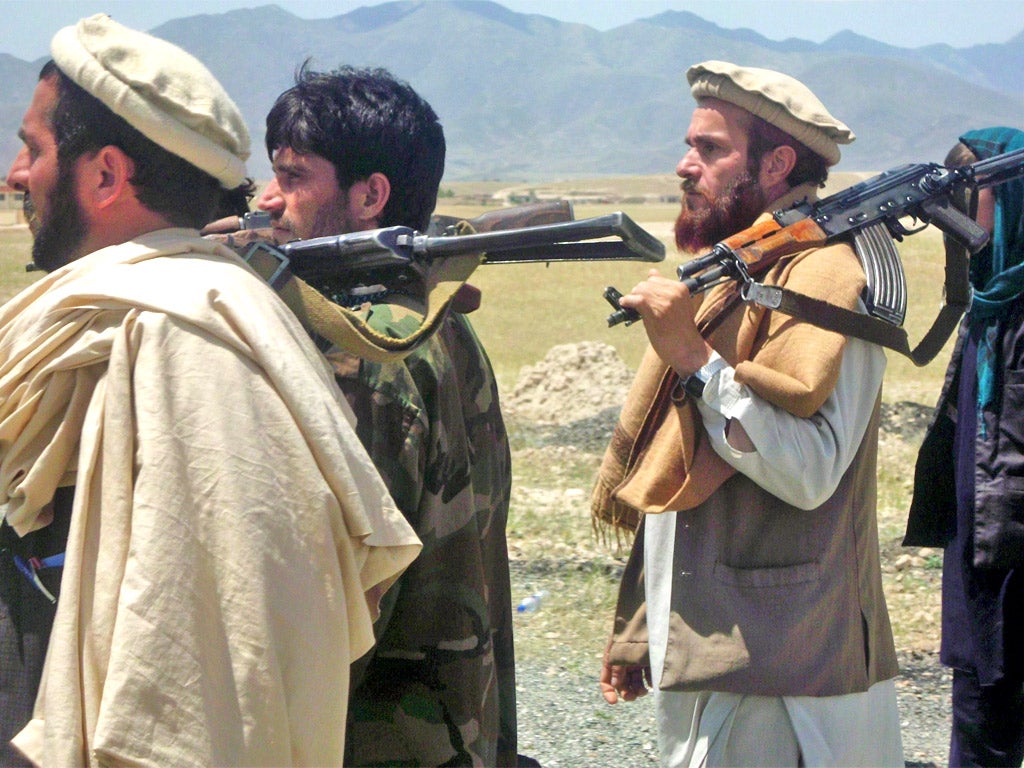The Taliban are divided and in retreat, insist top US officials

Two of the most powerful American officials in Afghanistan have insisted that the Taliban are in retreat with its leadership divided, contradicting claims by senior figures in Washington that the insurgency has actually grown stronger since Barack Obama authorised the surge of forces two years ago.
The remarkably confident assessment by the two officials – General John Allen, the head of international forces in the country, and the US ambassador, Ryan Crocker – comes weeks ahead of a crucial summit in Chicago to set up the blueprint for Nato's exit path from the long and costly war and organise a support system for Afghanistan after the 2014 withdrawal.
Senator Dianne Feinstein and Representative Mike Rogers, the chairs respectively of the Senate and House intelligence committees, recently visited Afghanistan and said on Sunday that the Taliban still controlled swathes of the country and could be in a position to attempt to seize back power in the future. But Mr Crocker and General Allen insisted that the real risk to a stable post-conflict landscape would come if the international community failed to provide the necessary funding for the Afghan military and the country's infrastructure.
"There is pretty clear evidence that the surge has accomplished a great deal," Gen Allen told The Independent during a visit to Uruzgan province. "It has not been just a surge of military, but a surge of capacity building. The Afghan security forces have made tremendous progress and they are moving into the lead very effectively. They are having tremendous success in the battlefield and this will continue."
Gen Allen held that many in the insurgent ranks are seeking peace. "They see their leaders safe in Pakistan while they are doing the fighting. We have seen how the process of reintegration is progressing," he said. "This time last year we had 600 to 700 going home, now this is more than 4,000."
The current focus is on Chicago, where one of the main aims will be to work out the future strength of the Afghan security forces. It is due to reach 352,000 by the autumn, with plans to reduce them to about 230,000 after Nato leaves, primarily for cost reasons. A smaller force would mean a reduction of the budget from $6bn (£3.7bn) to $4.2bn.
Mr Crocker said the numbers of Afghan forces should be kept to the higher limit until the security situation allowed a cutback, and stressed that a premature reduction would risk losing what had been gained by the "sacrifice of blood and treasure". He said funding of the final total should continue as long as necessary.
"Because if we decide that we're done, it's taking too long, and costs too much, and we're tired and don't want to do it anymore and back out of this before we give the Afghans the means ... then we have set the stage for the next 9/11," he said in Kabul. "So a little bit of reinvestment that can assure us all that Afghanistan will be able to secure its own future is, I think, not too much to ask."
There was agreement between Mr Crocker and the Congressional leaders about the threat posed to Afghanistan by insurgents based in Pakistan. Ms Feinstein and Mr Rogers want the Haqqani Network – which the Pakistani spy agency, the ISI, has been accused of backing – to be prescribed as a terrorist organisation.
And the US ambassador, who said the Pakistani safe havens remained "the single biggest obstacle to peace", rejected calls from Islamabad for an American apology over an air strike following a cross-border shooting in which 22 Pakistani soldiers were killed.
"I would have to tell you, having had my embassy in Kabul attacked twice by Pakistan-based insurgents – and this is American soil – I'm not really much inclined toward an apology." He added: "I have also been to Miranshah [in Pakistan] and seen just how close geographically the Haqqani base is to ISI headquarters in the area."
The apprehension caused by a drawdown of Afghan forces with the renewed attacks by insurgents was forcefully pointed out to Gen Allen by the head of the Uruzgan elders council, Haji Saktar Mohammed Shah at a meeting.
"Our village was in such a dangerous area that neither the army nor the police dared to go there," he said. "But now things are so much better that even one policeman can go there by walking. But now we are told the police taksil (numbers) are to be cut. This will put us back in danger, please don't let this happen."
Join our commenting forum
Join thought-provoking conversations, follow other Independent readers and see their replies
Comments